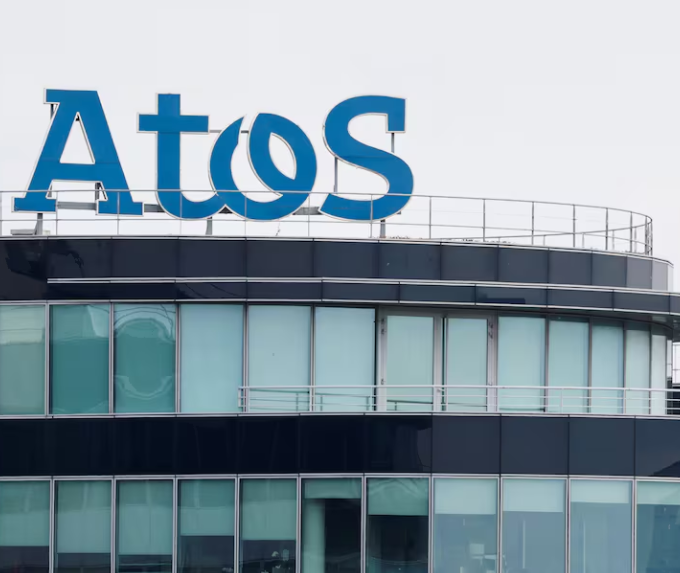- Home
- Billionaires
- Investing Newsletters
- 193CC 1000
- Article Layout 2
- Article Layout 3
- Article Layout 4
- Article Layout 5
- Article Layout 6
- Article Layout 7
- Article Layout 8
- Article Layout 9
- Article Layout 10
- Article Layout 11
- Article Layout 12
- Article Layout 13
- Article Layout 14
- Article Sidebar
- Post Format
- pages
- Archive Layouts
- Post Gallery
- Post Video Background
- Post Review
- Sponsored Post
- Leadership
- Business
- Money
- Small Business
- Innovation
- Shop
Recent Posts
Apple Stands Firm on DEI Programs While Other Tech Giants Retreat

In a notable stance against growing conservative pressure, Apple’s board of directors has firmly recommended shareholders vote against a proposal to eliminate the company’s Diversity, Equity, and Inclusion (DEI) programs. The proposal, submitted by the conservative think tank National Center for Public Policy Research (NCPPR), suggested ending Apple’s inclusion and diversity initiatives, citing potential legal, reputational, and financial risks.
The tech giant’s leadership maintains that the proposal is unnecessary, emphasizing that Apple already has a robust compliance program in place. The company’s board, which includes CEO Tim Cook, has characterized the NCPPR’s suggestion as an inappropriate attempt to micromanage Apple’s business operations and strategies.
This decision comes at a crucial time when several major U.S. corporations are scaling back their DEI commitments. Meta, the parent company of Facebook and Instagram, recently became the latest to reduce its DEI programs, joining other industry giants like Amazon, Walmart, and McDonald’s. These changes reflect a broader response to conservative backlash against DEI initiatives, particularly following the 2023 Supreme Court ruling against affirmative action in university admissions.
Apple’s position stands in stark contrast to the current corporate trend. The company maintains its commitment to equal opportunity employment, explicitly stating that it “does not discriminate in recruiting, hiring, training, or promoting on any basis protected by law”. This resolute stance demonstrates Apple’s dedication to maintaining its diversity initiatives despite mounting pressure from conservative groups.
The timing of this development is particularly significant as it coincides with the anticipated return of Donald Trump to the White House. Trump has been a vocal critic of DEI measures, and his imminent presidency has influenced several companies’ decisions to modify their diversity programs. Notable among these is Meta’s Mark Zuckerberg, who has made efforts to reconcile with Trump, including a $1 million donation to his inauguration fund.
The proposal will face a decisive moment at Apple’s annual general meeting scheduled for February 25, where shareholders will cast their votes. The NCPPR’s argument centers on the potential legal vulnerabilities that DEI programs might create, particularly in light of recent Supreme Court decisions. However, Apple’s board maintains that their existing compliance programs adequately address these concerns.
Tim Cook’s leadership has seen an 18% increase in compensation in 2024, earning a total of $74.6 million, including a $3 million base salary and substantial stock awards7. This compensation increase comes as Apple continues to navigate complex social and political pressures while maintaining its commitment to workplace diversity and inclusion.
The company’s stance reflects a broader debate in corporate America about the future of DEI programs. While some companies retreat from these initiatives, Apple’s resistance to pressure signals its commitment to maintaining inclusive workplace policies, even as the political and legal landscape continues to evolve.
- affirmative action
- Amazon
- Apple
- board recommendations
- Business Ethics
- Business Leadership
- business operations
- business strategy
- business trends
- conservative think tanks
- corporate accountability
- corporate compliance
- corporate culture
- corporate diversity
- Corporate governance
- Corporate Leadership
- Corporate Management
- corporate policy
- corporate reform
- corporate responsibility
- Corporate Strategy
- DEI programs
- diversity initiatives
- Donald Trump
- employee policies
- employee rights
- equal opportunity employment
- human resources
- inclusion policies
- legal compliance
- Meta
- NCPPR
- shareholder proposals
- shareholder rights
- shareholder voting
- Silicon Valley
- Social Change
- Social Justice
- Social Responsibility
- Supreme Court Ruling
- tech employment
- tech giants
- Tech Industry
- tech sector
- tech workplace
- Tim Cook
- Workplace Culture
- workplace discrimination
- workplace diversity
- workplace equality
- workplace policies
Recent Posts
Categories
- 193 Countries Consortium Partner1
- 193cc Digital Assets2
- 5G1
- Aerospace & Defense48
- AI37
- Arts3
- Banking & Insurance11
- Big Data3
- Billionaires1,467
- Boats & Planes1
- Business332
- Careers13
- Cars & Bikes79
- CEO Network1
- CFO Network17
- CHRO Network1
- CIO Network1
- Cloud10
- CMO Network18
- Commercial Real Estate7
- Consultant1
- Consumer Tech194
- CxO1
- Cybersecurity73
- Dining1
- Diversity, Equity & Inclusion4
- Education7
- Energy8
- Enterprise Tech29
- Events11
- Fintech1
- Food & Drink2
- Franchises1
- Freelance1
- Future Of Work2
- Games149
- GIG1
- Healthcare79
- Hollywood & Entertainment203
- Houses1
- India’s 1000 Richest1
- Innovation46
- Investing2
- Investing Newsletters4
- Leadership65
- Lifestyle11
- Manufacturing1
- Markets20
- Media327
- Mobile phone1
- Money13
- Personal Finance2
- Policy569
- Real Estate1
- Research6
- Retail1
- Retirement1
- Small Business1
- SportsMoney42
- Style & Beauty1
- Success Income1
- Taxes2
- Travel10
- Uncategorized14
- Vices1
- Watches & Jewelry2
- world's billionaires1,436
- Worlds Richest Self-Made Women2
Related Articles
Atos Surpasses 2024 Liquidity Targets with €2.19 Billion Year-End Position, Marking Strong Financial Recovery
French IT giant Atos SE has announced its estimated liquidity position for...
By 193cc Agency CouncilJanuary 22, 2025Innovative Gaming Meets Sustainability: Cranfield School’s “Game of Life” Wins Prestigious FT Teaching Award
In a significant recognition of innovative educational approaches, Cranfield School of Management...
By 193cc Agency CouncilJanuary 22, 2025Bitcoin Shatters Records, Surges Past $109,000 as Trump’s Inauguration Fuels Crypto Rally
In a historic moment for the cryptocurrency market, Bitcoin reached an unprecedented...
By 193cc Agency CouncilJanuary 20, 2025Billions in Child Trust Funds Remain Unclaimed as Young Adults Miss Out on Financial Windfall
A staggering £1.4 billion in Child Trust Funds (CTFs) remains unclaimed, with...
By 193cc Agency CouncilJanuary 20, 2025















Leave a comment